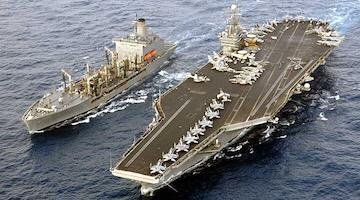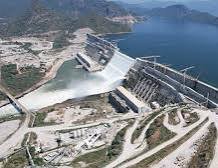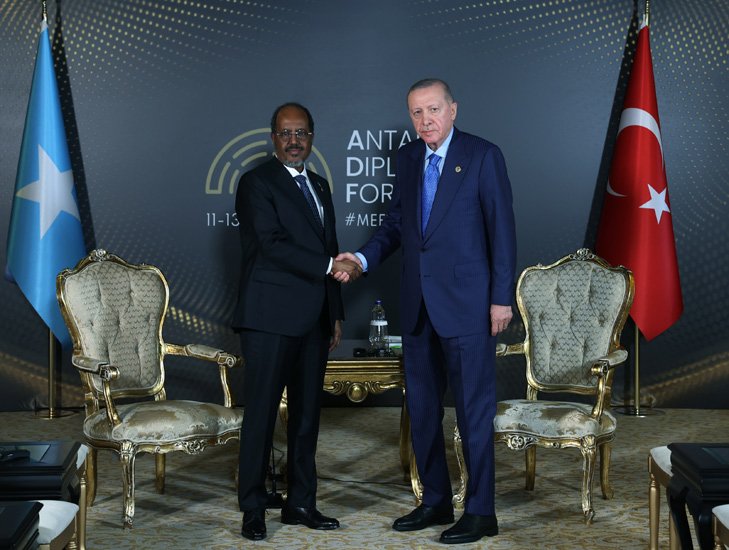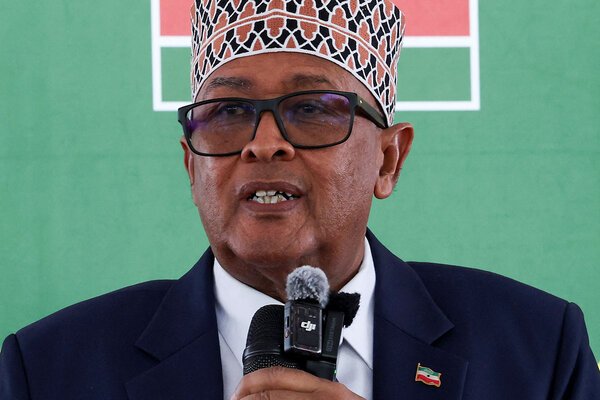
Somaliland President Abdirahman Mohamed Abdullahi "Ciro"
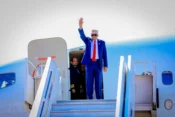
Somaliland’s strategic location at the mouth of the Red Sea and the Gulf of Aden, combined with its stable democratic governance, is attracting unprecedented diplomatic, military, and economic interest from regional Gulf powers and global actors. President Cirro’s active shuttle diplomacy — from the UAE, Djibouti, Kenya, and now Qatar — is being watched closely by observers who believe the world is inching toward breaking the diplomatic blockade around Somaliland.
Somaliland is no longer a forgotten corner of the Horn — it is now a frontline of the new Great Game unfolding in the Red Sea. Gulf powers, the U.S., and Africa’s big players are all watching — and acting.
Following President Cirro’s landslide victory and peaceful democratic transfer of power, Somaliland has shifted to a highly active diplomatic strategy. From red-carpet welcomes in the UAE and Djibouti to opening a diplomatic office in Kenya and talks with U.S. military and diplomatic officials — Somaliland is moving fast to position itself as the Horn’s most reliable democratic partner.
Some of the key points that are important to mention are, UAE’s investment (422$) Berbera port deal and $3B railway to be built soon connecting Berbera to Addis Ababa, recent US military assessment of Berbera for potential base access, opening a diplomatic mission in Kenya during president Cirros’s recent visit despite Somalia’s protests and his visit to Djibouti restoring ties post-Bihi-Ethiopia controversial MoU rift, which Abby Ahmed is still interested in reviving it when Cirro meets him in Addis this July, 2025.
The Red Sea is not just a waterway — it’s a new frontline. The Gulf States — UAE, Saudi Arabia, Qatar — are competing for influence. Egypt’s regional role is diminishing. Somaliland offers something they all want: access, stability, and a foothold. The UAE is an early investor ahead of the game and has a military presence in Berbera while Saudi Arabia is playing catch up and seeking port access & security partnerships. Qatar is making up only now and might be a late bloomer, but strategically, what is Qatar up to entering the game so late at this stage — possible pressure or support? President Cirro is cautiously vigilant not to fall into a trap at the expense of sovereignty. As a seasoned diplomat, he is fully aware of Somaliland strategic leverage.
Every power wants to be the first to recognize Somaliland — but no one wants to go first. That’s why Cirro’s diplomacy to vist Qatar is about breaking that chain of hesitation. President Cirro must carefully analyze what Qatar’s Role will be in Berbera, now that he is in Doha on official working visit. Somalilanders know that Qatar has a long history of favoring the ‘One Somalia’ policy. But in the context of regional rivalry with UAE and Saudi Arabia, Qatar may be recalculating, just as U.S. and its western allies have recently realized that Somalia is a failed state despite decades of billions of dollars in foreign aid and military assistance, but today doesn’t have control outside Villa Somalia.
It seems that there are two logical interpretations, to Pressure Somaliland to resume talks with Somalia (especially after Sool/Sanaag tensions) and this is a dangerous path for Somaliland, but on the positive side, Qatar is trying to balance UAE/Saudi influence in Berbera, and this is the best option for Somaliland. Therefore, It may be smart to re-engage Qatar economically — but not diplomatically at the cost of Somaliland’s sovereignty.
Closing Analysis & Outlook
The competition between democratic and authoritarian powers in the Red Sea could finally open the door for Somaliland — but only if its leadership maintains clarity, national unity, and a principled strategy. Recognition is not a gift — it is earned through leadership, legitimacy, and leveraging the strategic cards Somaliland now holds. After decades of diplomatic stagnation, Somaliland under President Cirro is in motion. His administration has embarked on shuttle diplomacy, leveraging the Red Sea’s renewed importance to push for recognition and economic investment.
About The Author: Prof. Nassir Kahin, is a political analyst and academic specializing in international law, International Relations, Dynamics of African/Midle East Politics, Red Sea geopolitics, and Somaliland’s quest for recognition. He is the Managing Editor of Bridging Somaliland News Media (https:bridgingsomaliland.com) and regularly publishes insights on both regional and international diplomacy and strategic affairs pertaining to Somaliland and the Horn of Africa region.
